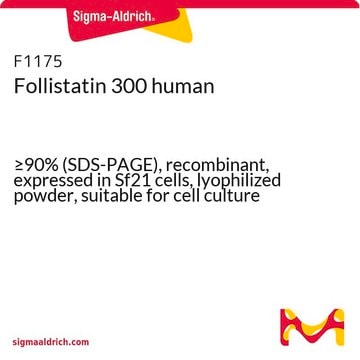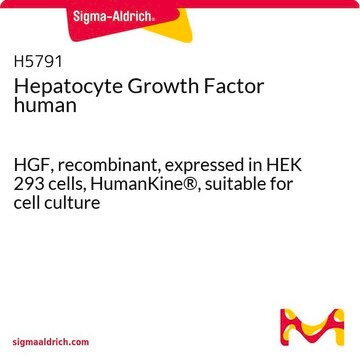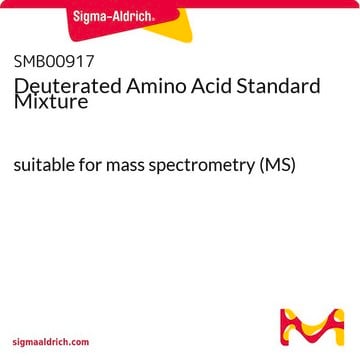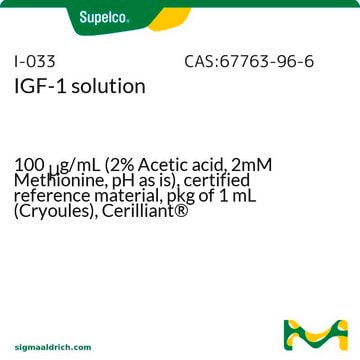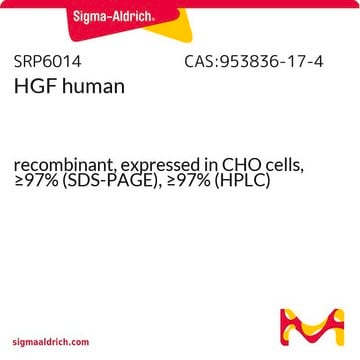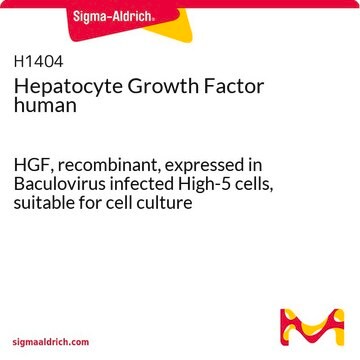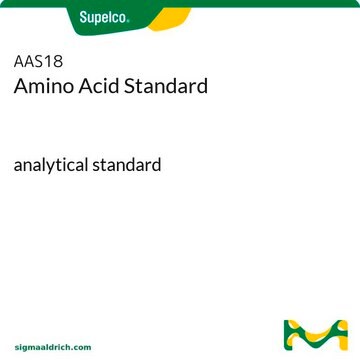SRP3045
Follistatin human
recombinant, expressed in E. coli, ≥98% (SDS-PAGE), ≥98% (HPLC), suitable for cell culture
Synonym(s):
FS, activins-binding protein
About This Item
Recommended Products
biological source
human
recombinant
expressed in E. coli
Assay
≥98% (HPLC)
≥98% (SDS-PAGE)
form
lyophilized
potency
0.1-0.4 μg/mL
mol wt
31.5 kDa
packaging
pkg of 20 μg
technique(s)
cell culture | mammalian: suitable
impurities
<1.0 EU/μg endotoxin, tested
color
white to off-white
suitability
suitable for molecular biology
UniProt accession no.
shipped in
wet ice
storage temp.
−20°C
Gene Information
human ... FST(10468)
General description
Follistatin is expressed in the pituitary, ovaries, decidual cells of the endometrium, and in some other tissues. The gene is mapped to human chromosome 5q11.2. Recombinant human Follistatin is a 31.5kDa protein containing 288 amino acids. Its primary structure contains three cysteine-rich domains (called FS domains), each followed by a protease-inhibitory kazal domain.
Application
Biochem/physiol Actions
Sequence
Physical form
Reconstitution
Signal Word
Warning
Hazard Statements
Precautionary Statements
Hazard Classifications
Eye Irrit. 2 - Skin Irrit. 2 - STOT SE 3
Target Organs
Respiratory system
Storage Class Code
13 - Non Combustible Solids
WGK
WGK 3
Flash Point(F)
Not applicable
Flash Point(C)
Not applicable
Certificates of Analysis (COA)
Search for Certificates of Analysis (COA) by entering the products Lot/Batch Number. Lot and Batch Numbers can be found on a product’s label following the words ‘Lot’ or ‘Batch’.
Already Own This Product?
Find documentation for the products that you have recently purchased in the Document Library.
Our team of scientists has experience in all areas of research including Life Science, Material Science, Chemical Synthesis, Chromatography, Analytical and many others.
Contact Technical Service